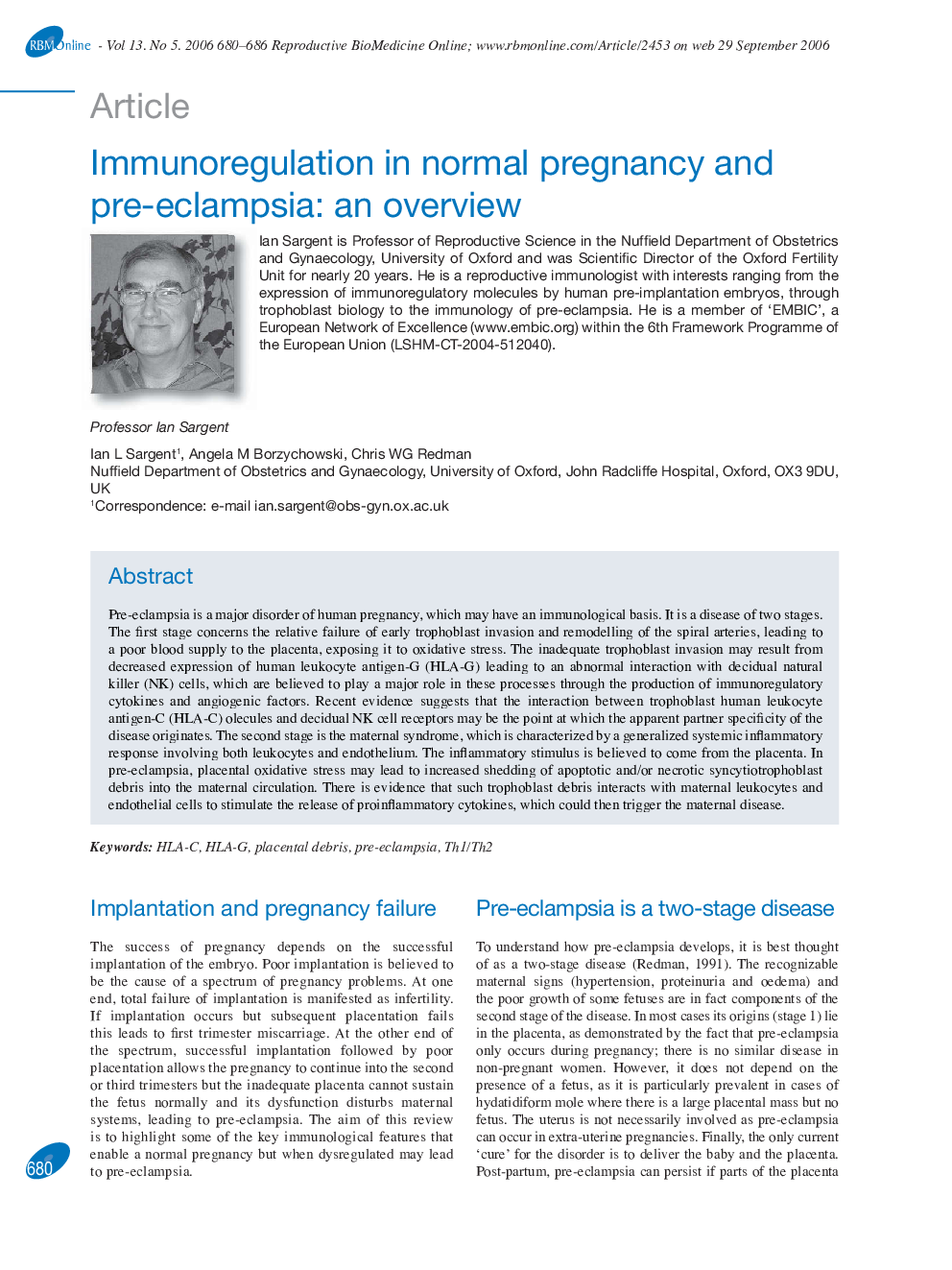| Article ID | Journal | Published Year | Pages | File Type |
|---|---|---|---|---|
| 3973542 | Reproductive BioMedicine Online | 2006 | 7 Pages |
Pre-eclampsia is a major disorder of human pregnancy, which may have an immunological basis. It is a disease of two stages. The first stage concerns the relative failure of early trophoblast invasion and remodelling of the spiral arteries, leading to a poor blood supply to the placenta, exposing it to oxidative stress. The inadequate trophoblast invasion may result from decreased expression of human leukocyte antigen-G (HLA-G) leading to an abnormal interaction with decidual natural killer (NK) cells, which are believed to play a major role in these processes through the production of immunoregulatory cytokines and angiogenic factors. Recent evidence suggests that the interaction between trophoblast human leukocyte antigen-C (HLA-C) olecules and decidual NK cell receptors may be the point at which the apparent partner specificity of the disease originates. The second stage is the maternal syndrome, which is characterized by a generalized systemic inflammatory response involving both leukocytes and endothelium. The inflammatory stimulus is believed to come from the placenta. In pre-eclampsia, placental oxidative stress may lead to increased shedding of apoptotic and/or necrotic syncytiotrophoblast debris into the maternal circulation. There is evidence that such trophoblast debris interacts with maternal leukocytes and endothelial cells to stimulate the release of proinflammatory cytokines, which could then trigger the maternal disease.
